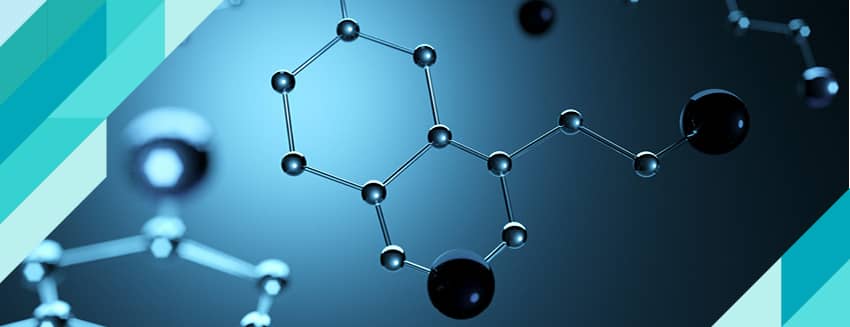
The hormone serotonin, also known as 5-hydroxytryptamine (5-HT), is a chemical secretion involved in many functions of the human body. It carries signals between nerve cells in the brain and nerve cells in the body. It helps regulate mood and is also called the feel-good and happiness hormone. It also plays a key role in body functions such as sleep, digestion, nausea, wound healing, bone health and blood clotting. Serotonin levels that are too low or too high can cause a number of physical and psychological health problems.
Serotonin is a naturally occurring neurotransmitter that plays an important role in many different tasks in the human body. The majority of this hormone is produced in the brain and intestines. The intestines produce almost all of this hormone that the body needs and it is an essential hormone to support healthy digestion. However, this hormone produced in the intestines cannot cross the blood and brain barrier and the brain needs to produce this hormone itself.
What is the role of serotonin in the body?
As a neurotransmitter, serotonin helps to transmit messages and signals from one area of the brain to another. Due to the widespread distribution of its cells, it is thought to influence various psychological and other bodily functions. Most brain cells are directly or indirectly affected by this hormone. This includes brain cells involved in mood, sexual desire and function, appetite, sleep, memory and learning, body temperature regulation, and some social behaviors. The benefits of the hormone serotonin and its role in the body can be listed as follows:
Mood: It is thought to play an important role in regulating feelings such as anxiety and happiness. Therefore, if the so-called happiness hormone is at normal levels, a person can feel focused and attentive, emotionally balanced, calm and happier. Lower and deficient levels of the hormone may be associated with depression, anxiety and other mood disorders. Most medications used to treat psychological problems aim to increase the level of the chemical in the brain.
Digestion: Serotonin, a hormone produced mostly in the intestines, may play a role in protecting the intestines and aiding digestive functions. The intestines can increase the release and amount of this hormone to speed up digestion and protect the body from irritating and damaging foods or toxic products. This hormone may also reduce appetite.
Bone Health: The level of happiness hormone in the body may play a role in bone health. High levels in the intestines can weaken bones, resulting in bone fractures and osteoporosis.
Sleep: Along with another neurotransmitter, dopamine, it may play a role in sleep quality. The brain also needs it for the production of the hormone melatonin, which regulates the sleep-wake cycle.
Nausea: Nausea can be triggered when this hormone is produced faster than it can be digested in the intestines.
Wound Healing: It is released by platelets in the blood in case of any injury to the body and to help heal wounds. It can play an important role in wound healing as it also plays a role in blood clotting.
Sexual Health: May be involved in controlling sexual desire and function. It is thought that this may be why drugs that affect hormone levels are associated with sexual side effects.
What are the Symptoms of Serotonin Deficiency?
Low serotonin levels can be linked to many different health conditions. In addition, Serotonin deficiency symptoms can be listed as follows:
- Different mood changes such as depression, anxiety, worry and anxiety
- Sleep disorders
- Digestive problems
- Suicidal behavior
- Obsessive-compulsive disorder (OCD)
- Post-traumatic stress disorder (PTSD)
- Schizophrenia
- Phobias
- Panic disorders and panic attacks
- Chronic pain and movement disorders
- Dementia and memory problems
Causes of Serotonin Deficiency
There is usually more than one cause for a low serotonin level. Factors that cause serotonin deficiency include
- Chronic stress
- Nutritional disorders
- Digestive problems
- Specific medicines used
- Hormone changes
- Lack of sunlight
- Sedentary lifestyle and obesity
- Age-related health and brain changes
In order to eliminate the deficiency, a specialist doctor should be consulted first. If a problem is observed after the necessary controls are carried out by the specialist, he/she may prescribe certain medications and apply different treatment methods to increase the hormone level. In addition, the person may need to improve the quality of life, diet and exercise, benefit from sunlight and apply different meditation techniques.
High Serotonin Symptoms and Serotonin Syndrome
Serotonin syndrome is a serious condition that occurs as a result of excess serotonin accumulating in the body, usually through medication or supplements. The factors that cause serotonin excess and syndrome can be listed as follows:
- Combined use of different prescription drugs
- Simultaneous use of supplements or herbal products that affect serotonin levels with these drugs
- First-time use of a new medication that affects the hormone's level or increasing the dose of an existing medication
Symptoms of serotonin syndrome usually appear within a few hours after taking a new medication or increasing the dose of an existing medication. These symptoms can be mild or severe and can affect the brain, muscles and different parts of the body. They can also be life-threatening in some cases. If symptoms appear, you should seek medical attention immediately. In addition, mild, moderate and severe symptoms of serotonin excess are as follows:
Mild Symptoms
- Irritability
- Nausea and vomiting
- Diarrhea
- Tremor
Moderate Symptoms
- Agitation or restlessness
- Sleep disturbance
- Muscle twitches and cramps
- Muscle stiffness
- Sweating and chills
- Dilated pupils and abnormal eye movements
Severe Symptoms
- High fever
- Irregular heartbeat
- High blood pressure
- Seizures, fainting or coma
- Unconsciousness (confusion)
